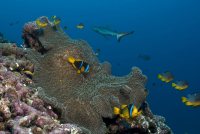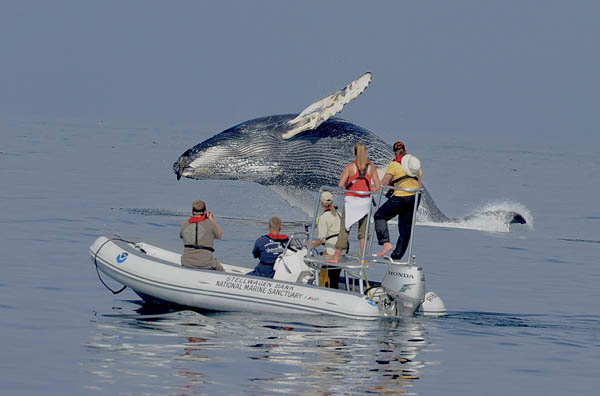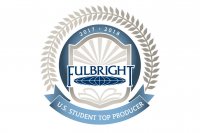
Friedlaender ’96 returns to present humpback whale research

Observers from Stellwagen Bank National Marine Sanctuary get a front-row view as a humpback whale breaks the ocean’s surface. Photograph by Ari Friedlaender ’96.
A marine science and conservation researcher will reveal how technology can be used to study the feeding behavior of humpback whales, in a lecture at 4:10 p.m. Tuesday, Nov. 6, in Room 204 of Carnegie Science Hall, 44 Campus Ave.
The lecture is sponsored by the Bates biology department. Admission is open to the public at no cost. Refreshments will be available at 3:45 p.m. For more information, please call 207-786-6490.
Ari Friedlaender, a member of the Bates class of 1996 and a marine science and conservation researcher at Duke University Marine Laboratory, offers the lecture Seeing Below the Surface: Using Tag Technology to Study Humpback Whale Feeding Behavior.
Friedlaender will discuss the advent of multisensor and video-recording tags in humpback whale behavioral research. Humpbacks are among the largest animals on the planet and live in all of the oceans. Because of their size, they require large amounts of prey and are uniquely adapted to maneuver and behave in ways that other whales cannot. Throughout their range, these whales have developed specialized ways to capture different types of prey from krill to schooling fishes.
Researchers use customized visualization software to better understand how humpbacks maximize their feeding rates, linking the movement patterns of whales with the distribution and abundance of their prey.
Animal-borne video also provides a unique perspective on how humpbacks navigate through their environment and how their activities relate to other factors such as sea ice, fishing gear and other whales. The video tags give researchers information not only about humpback behavior, but about how their behavior may increase the risk of negative interactions with human activities, including boating and fishing.
Friedlaender, who is also a professional photographer, is experienced in marine-mammal foraging ecology, tagging and the effects of climate change. His secondary areas of expertise include conservation biology, endangered/threatened species, geospatial technologies, global change ecology, marine science and oceanography.




